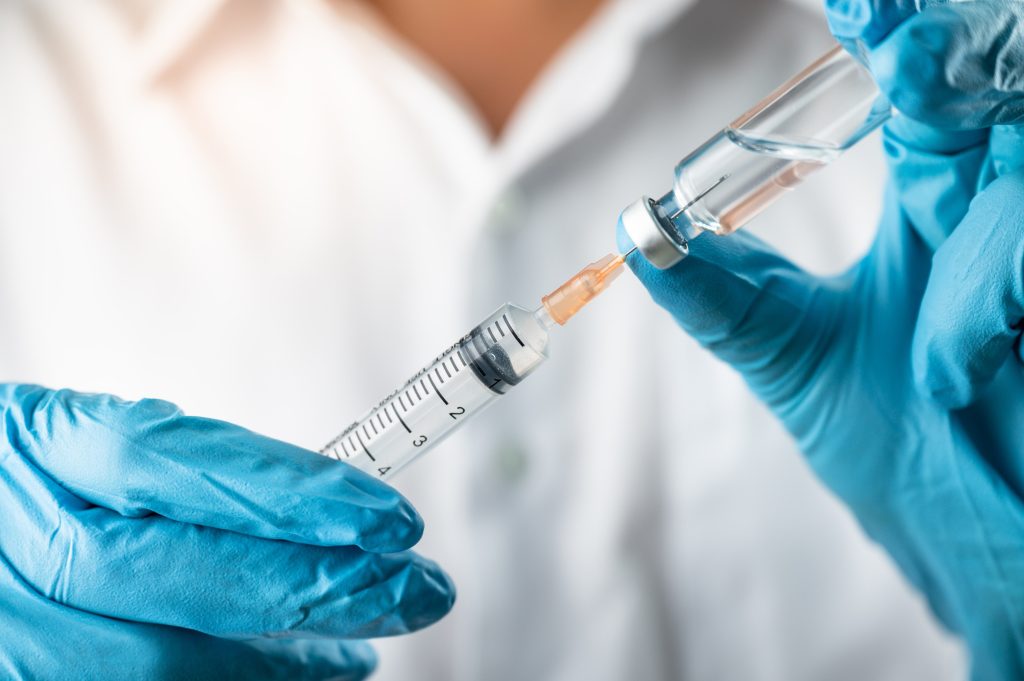Liver Function Tests in Singapore?
The liver is the largest internal organ shaped like a cone. It is located in the upper right quadrant of the abdomen, below the diaphragm, and above the stomach. The liver consists of two main lobes, which are made up of many small lobules. These lobules are connected to small ducts that eventually form the common hepatic duct. The common hepatic duct transports bile made by the liver cells to the gallbladder.
The liver plays many vital roles, including the regulation of chemical levels in the blood and the excretion of waste products called bile. Common functions of the liver include:
- Production of bile
- Production of proteins for blood plasma
- Production of cholesterol
- Production of immune factors
- Regulation of amino acids in the blood
- Regulation of blood coagulation
- Conversion of ammonia to urea
- Conversion of excess glucose to glycogen for storage
- Clearance of bilirubin
The liver function tests in Singapore, also known as a liver panel, help to locate the source of abnormalities by monitoring the levels of various proteins and enzymes in the blood [2-4]:
- Alanine Transaminase (ALT): It is an enzyme mainly found in the liver that converts proteins into energy for the liver cells. A significant amount of ALT can also be found in the kidneys and skeletal muscles. Elevated amounts of ALT in the bloodstream could indicate considerable cellular necrosis and liver damage.
- Aspartate Transaminase (AST): It is an enzyme that metabolises amino acids, and they can be found in various parts of the body, including the heart, brain, and pancreas. High levels of AST are found in the liver and skeletal muscles. The amount of AST increased after incidents such as bruising, trauma, and infection.
- Alkaline Phosphatase (ALP): This enzyme helps
tobreak down proteins. A high amount of the enzyme can be found in the liver and bone. It can also be present in kidney tubules, lungs, and intestinal epithelium. An elevated amount of ALP could indicate intestinal or biliary damage.
- Gamma-Glutamyl Transferase (GGT): It is an enzyme that functions like a transport molecule and plays an important role in helping the liver metabolise drugs and other toxins. It is mainly found in the liver but is also present in the gallbladder, spleen, and pancreas. Elevated levels of GGT could indicate liver damage.
- Bilirubin: Bilirubin is a waste product from the breakdown of haemoglobin in red blood cells. In the liver, bilirubin is excreted as bile. As such, bilirubin level measures the liver and bile tract function
- Albumin: Albumin is the main protein produced by the liver. It plays several roles, such as transporting hormones and other substances throughout the body. It also helps to maintain osmotic pressure within the intravascular compartment. Abnormal levels of albumin could indicate liver damage or disease.
- Prothrombin Time (PT): Prothrombin is a circulating precursor of thrombin which is involved in blood coagulation. Prothrombin time refers to the time it takes for blood to clot, and it is a measure of the function of the extrinsic coagulation pathway.
- Lactate Dehydrogenase (LDH): It is an enzyme that catalyses the conversion of pyruvate to lactate. LDH is present in all cells, but high amounts can be found in the liver, muscle, and kidney. Elevated amounts of LDH could indicate conditions such as hepatitis, shock, and hypoxia.
The liver function tests are most commonly conducted in Singapore for the following purposes:
- To diagnose liver diseases such as hepatitis
- To measure the severity or extent of damage caused by a disease
- To monitor the progression of liver disease
- To monitor the treatment of liver diseases
- To monitor side effects of certain medications such as NSAIDs, statins, antibiotics, anti-seizure medications
Your doctor may order the liver function test if you exhibit any of the following symptoms:
- Jaundice
- Nausea and vomiting
- Diarrhoea
- Abdominal pain
- Weight loss
- Fatigue
- Dark-coloured urine
- Light-coloured stool
When are the Results of Each Test Considered Abnormal?
These test results can vary between men, women and children, with the below results being ‘typical’ for adult men. Additionally, the ‘normal range’ can also differ among different laboratories.
If more than one liver function test exhibits results outside the normal range, it could be indicative of various liver problems such as Hepatitis A, Hepatitis B, Hepatitis C, alcohol abuse or liver cancer.
Summary of liver tests interpretation:
| Liver Test | Normal Range [2] | Higher Than Normal | Lower Than Normal | False Positive |
|---|---|---|---|---|
| Alanine Transaminase | 7 to 55U/L | Alcohol-induced liver injury, fatty liver disease, hepatitis, cirrhosis, liver tumour, infectious mononucleosis | Vitamin B6 deficiency, chronic kidney disease | Exercise, medications, menstruation |
| Aspartate Transaminase | 8 to 48U/L | Alcohol-induced liver injury, liver cancer, hepatitis, cirrhosis, myocardial infarction, muscle disease, pancreatitis | N/A | Deep burns, seizures, surgery, intense exercise, pregnancy |
| Alkaline Phosphatase | 40 to 129U/L | Liver inflammation, biliary atresia, biliary stricture, cholestasis, cirrhosis, hepatitis, mononucleosis, bone disease | Hypothyroidism, zinc deficiency, malnutrition | Medications, pregnancy, diet, AIDS |
| Gamma-Glutamyl Transferase | 8 to 61U/L | Hepatitis, cirrhosis, cholestasis, alcohol liver disease, fatty liver disease, liver ischemia, diabetes, pancreatitis, congestive heart failure | N/A | Medications, alcohol, smoking |
| Lactate Dehydrogenase | 122 to 222U/L | Anaemia, kidney disease, liver disease, muscle injury, heart attack, pancreatitis | N/A | Intense exercise, heart attack, anemia, infections |
| Albumin | 3.5 to 5g/dL | Dehydration, severe diarrhoea | Cirrhosis, liver disease, kidney disease, malnutrition, cancer, infection, inflammation | N/A |
| Bilirubin | 0.1 to 1.2mg/dL | Gilbert’s syndrome, cirrhosis, hepatitis | N/A | Medication |
| Prothrombin Time | 9.4 to 12.5s | Bleeding disorders | N/A | Vtiamin K, Vitamin C in excess, warfarin |
Common Causes of Abnormal Liver Function Tests
Common causes of abnormal liver function tests include:
- Alcohol: AST to ALT ratio of at least 2:1 is present in patients with alcohol use disorder. Elevated GGT and AST levels could also indicate alcohol abuse.
- Medication: Various medications such as NSAIDs, antibiotics, statins, and anti-seizure drugs are known to cause liver damage. Long-term use of such medications can lead to chronic hepatocellular or cholestatic liver damage.
- Viral hepatitis: Viral hepatitis B, C, and D can cause chronic hepatitis, while hepatitis A and E can cause acute hepatitis. Other viruses such as HIV, Epstein-Barr, and Cytomegalovirus can also cause hepatitis.
- Autoimmune hepatitis: It is a chronic disease that tends to progress to cirrhosis. Patients with autoimmune hepatitis usually present with high liver function tests without apparent cause.
- Fatty liver disease: Fatty liver disease, also known as non-alcoholic steatohepatitis, can cause chronic hepatitis disease and hepatocellular carcinoma. Patients with fatty liver disease usually present with elevated AST and ALT levels.
- Hemochromatosis: It refers to the abnormal accumulation of iron in the parenchymal organs. Clinical presentations of haemochromatosis include diabetes, liver disease, and hyperpigmentation.
- Wilson disease: A rare inherited disorder of the copper metabolism with excess copper disposition in the liver and other tissues.
- Alpha-1 antitrypsin deficiency: It is a genetic condition that predisposes patients to obstructive pulmonary disease and liver disease.
How Do I Keep my Liver Functions Healthy?

The most effective way to fight against liver disease is prevention. The following describes ways to keep the liver healthy:
- Vaccination: There are vaccines available to protect against hepatitis A and B viruses.
- Medications: Medications taken incorrectly or with alcohol may cause harm to the liver. It is important to follow the directions on all medications strictly.
- Safe sex: Unprotected sex may increase the risk of hepatitis B and C infection.
- Alcohol: Alcohol is a risk factor for many health problems, including liver disease. Reduce alcohol intake or drink in moderation to maintain a healthy liver.
- Avoid toxins: Toxins from cleaning and aerosol products may cause liver damage. Protect yourself while using such products by wearing a mask.
- Exercise: Regular exercise can help to burn triglycerides and reduce liver fat.
- Diet: Reduce intake of high-calorie meals, saturated fat, refined carbohydrates and sugars. Increase intake of food that is good for the liver such as coffee, tea, grapefruit, blueberries, grapes, cruciferous vegetables, nuts, fatty fish, and olive oil.
What Are Some Things to Note About Abnormal Liver Function Tests?
The liver function blood tests consist of various diagnostic assessments for different proteins and enzymes to determine the overall health of the liver and to pinpoint the cause of certain abnormalities if any.
A singular test cannot accurately determine your diagnosis as enzymes such as alanine transaminase and aspartate transaminase are found in different parts of the body and are not limited to the liver. Your doctor will need to consider the other tests holistically for a conclusive diagnosis. If these tests reveal abnormalities, you will require further evaluation via a liver biopsy or imaging tests.
Summary
Liver function blood tests are used to assess liver health and diagnose conditions such as hepatitis and liver cancer. Abnormal levels of various proteins such as alanine transaminase, aspartate transaminase, alkaline phosphatase, gamma-glutamyl transferase, albumin, bilirubin, and prothrombin time could indicate liver damage or disease.
Additionally, liver function tests are used to monitor the progression of liver diseases and the side effects of certain medications. If there are abnormal results further evaluation with a biopsy or imaging test will need to be conducted. The best way to keep the liver healthy is to maintain a healthy diet, exercise regularly, and reduce alcohol intake.
If you experience symptoms of an unhealthy liver or are currently dealing with any liver-related issues, call us at Alpha Digestive and Liver Centre to schedule a consultation with gastroenterologist, Dr Benjamin Yip for further guidance and treatment options.
References
- Liver: Anatomy and functions. Johns Hopkins Medicine. (2019, November 19). Retrieved from https://www.hopkinsmedicine.org/health/conditions-and-diseases/liver-anatomy-and-functions
- Mayo Foundation for Medical Education and Research. (2021, August 18). Liver function tests. Mayo Clinic. Retrieved from https://www.mayoclinic.org/tests-procedures/liver-function-tests/about/pac-20394595
- Washington, I. M., & Van Hoosier, G. (2012). Clinical biochemistry and hematology. The Laboratory Rabbit, Guinea Pig, Hamster, and Other Rodents, 57–116. https://doi.org/10.1016/b978-0-12-380920-9.00003-1
- Bergen, T. (2018, October 6). What is the gamma-glutamyl transpeptidase (GGT) test? Healthline. Retrieved from https://www.healthline.com/health/gamma-glutamyl-transpeptidase
- Yetman, D. (2022, January 7). Liver function tests: Purpose, procedure, and results. Healthline. Retrieved from https://www.healthline.com/health/liver-function-tests#liver-disorder-symptoms
- Alanine transaminase (ALT) blood test: What it is, procedure & results. Cleveland Clinic. (n.d.). Retrieved from https://my.clevelandclinic.org/health/diagnostics/22028-alanine-transaminase-alt
- Aspartate transferase (AST) blood test: What it is, procedure & results. Cleveland Clinic. (n.d.). Retrieved from https://my.clevelandclinic.org/health/diagnostics/22147-aspartate-transferase-ast#test-details
- Alkaline phosphatase (ALP): What it is, causes & treatment. Cleveland Clinic. (n.d.). Retrieved from https://my.clevelandclinic.org/health/diagnostics/22029-alkaline-phosphatase-alp
- Gamma-glutamyl transferase (GGT) test: What it is & results. Cleveland Clinic. (n.d.). Retrieved from https://my.clevelandclinic.org/health/diagnostics/22055-gamma-glutamyl-transferase-ggt-test#results-and-follow-up
- Epstein, J. (2018, September 17). Lactate dehydrogenase test: Types, procedure, and results. Healthline. Retrieved from https://www.healthline.com/health/lactate-dehydrogenase-test#test
- Albumin blood test: What it is, purpose, procedure & results. Cleveland Clinic. (n.d.). Retrieved from https://my.clevelandclinic.org/health/diagnostics/22390-albumin-blood-test
- Bilirubin test: Test Details & Results. Cleveland Clinic. (n.d.). Retrieved from https://my.clevelandclinic.org/health/diagnostics/17845-bilirubin
- Prothrombin Time (PT) test: Purpose & Results Evaluation. Cleveland Clinic. (n.d.). Retrieved from https://my.clevelandclinic.org/health/diagnostics/17691-prothrombin-time-pt-test
- Lala, V., Minter, D. A., & Goya, A. (n.d.). Liver function tests. Retrieved from https://www.ncbi.nlm.nih.gov/books/NBK482489/
- 13 ways to a healthy liver. American Liver Foundation. (2021, June 24). Retrieved from https://liverfoundation.org/13-ways-to-a-healthy-liver/
- Jones, T. (2021, September 29). 11 foods that are good for your liver. Healthline. Retrieved from https://www.healthline.com/nutrition/11-foods-for-your-liver#11.-Olive-oil

